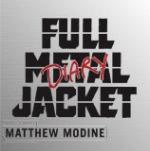|
This section contains 3,269 words (approx. 11 pages at 300 words per page) |

|
SOURCE: “From Hasford's The Short-Timers to Kubrick's Full Metal Jacket: The Fracturing of Identification,” in Literature/Film Quarterly, Vol. 16, No. 4, 1988, pp. 232-37.
In the following essay, Reaves contrasts Kubrick's Full Metal Jacket with the novel from which it is adapted, Gustav Hasford's The Short-Timers.
Stanley Kubrick's film, Full Metal Jacket, unlike Gustav Hasford's The Short-Timers, the novel on which it is based, denies the spectator identification with a consistent point-of-view; rather, it establishes a serial, roaming identification that results in our panoramic point-of-view. Contrasting with the coherent point-of-view in the novel, Full Metal Jacket's identification is fractured, offering us a multiplicity of ideological reference points.1 In reading The Short-Timers, we immediately identify with the character Joker, for the novel's first-person, present-tense narration demands our participation solely through the filter of his consciousness; thus, we are easily funneled into his ideological stance that grounds us for the remainder...
|
This section contains 3,269 words (approx. 11 pages at 300 words per page) |

|


